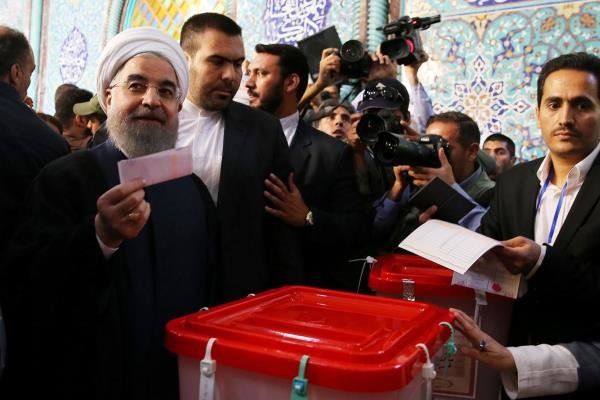Ten lessons from Iran’s presidential election

After two major elections in the U.S. and France, Iran’s presidential election was also held on May 19, 2017. While six candidates were in the presidential race, Mohammad Bagher Qalibaf, the mayor of Tehran, and first Vice President Es’haq Jahangiri withdrew. So two conservatives and two centrists remained in the race and lastly incumbent Hassan Rouhani secured a second term.
Apparently, this is the whole story but in terms of content and analysis, ten things are noticeable:
1) Contrary to interpretations by some foreign media outlets and analysts the election in Iran is not just in the interest of one person, group or party; rather it's in favor of Iran's political system.
In Iran, backing the political system is mostly preferred over political factions or parties.
2) Some 73 percent of qualified Iranian citizens participated in the election, while statistics in some old democracies in the West show turnout is much lower. Therefore support for the policies and decisions of the next government would be high.
3) Inclusive democracy that was tested in Iran on May 19 could lay the groundwork for a new discourse in democracy in the region. It can set in motion the first domino of democracy in the Middle East. Despite the fact that the Middle East is in a desperate situation, election in Iran is the strongest single beacon of hope for positive changes in the region.
4) While Iranians determine their fate through ballot boxes, most state governments in the region are unfamiliar with elections. At best, their so-called elections are unprofessional or at infant stage. Unfortunately, some should be named "pre-democratic states".
5) In contrast to the election in the U.S. that the loser was criticized, in Iran the loser respected the results.
6) The results of the election won't be limited to Iran’s borders. Iran is a major player in the Middle East and its election can affect the entire region. However it's up to other players what to choose.
7) Economic growth, development, employment, and social welfare were the first priorities of the candidates. During televised debates that were screened live, economic perspective was the candidates’ main focus. This priority is also backed by the system and the Supreme leader as well.
8) The reelected president is the same person who championed the nuclear deal, officially called the Joint Comprehensive Plan of Action (JCPOA).
9) Given Iranian Foreign Minister Mohammad Javad Zarif’s tweet that "we derive stability not from coalition, but from our people who- unlike many- do vote. Iranians must be respected and ready to engage", the current government is pro-engagement but won't ignore national interests. Zarif’s smiles during the negotiations and his seriousness in guarding Iran's interests must be viewed altogether.
10) If any power player is going to engage Iran, no one is better than the European Union. The EU has earned Iran’s trust after the nuclear deal.
MP/PA

Leave a Comment